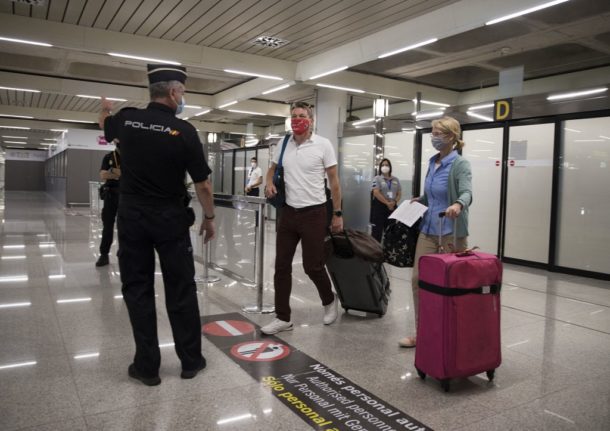What’s the latest?
Spain has opened up to unvaccinated non-EU/Schengen tourists for the first time in more than two years.
Previously it was not possible for third-country nationals to visit Spain for non-essential reasons such as a holiday, seeing family or spending time in a second home in Spain unless they were fully vaccinated against Covid-19 (plus booster after 9 months) or recovered from the illness in the past six months.
From May 21st 2022, unvaccinated tourists and other visitors from outside of the EU can travel to Spain if they show proof of a negative Covid-19 test, the Spanish government confirmed on Saturday. These are the same rules that apply to EU nationals and residents.
Spain’s testing requirements for non-EU/Schengen tourists apply to those aged 12 and older, children under that age are exempt from having to prove testing, vaccination or recovery.
What kind of Covid test do I need to get done to travel to Spain?
In scientific terms, Spain wants a diagnostic test that’s either a NAAT (nucleic acid amplification test, such as an RT-PCR, RT-LAMP, TMA) or a RAT (rapid antigen test).
In layman’s terms, that’s either a PCR test, which must be carried out in the 72 hours prior to departure to Spain, or an antigen test, 24 hours prior to departure.
Covid tests accepted are those authorised by the European Commission and must have been performed by healthcare professionals, therefore self-tests are not valid.
What do I need to show to travel to Spain if I’m unvaccinated?
You need to show an official certificate or supporting document which shows the negative result of your Covid test. Your country may have a system in place that allows you to upload your negative result to an app.
The document must be the original, in Spanish, English, French or German, and may be shown in paper or electronic format. If you can’t get it in these languages, it must be accompanied by a translation into Spanish by an official body.
The document that accredits the diagnostic test has to include the date the sample was taken, identification and contact details of the centre performing the analysis, technique used and negative result.
Spanish authorities recognise the UK’s NHS Covid Pass and others that fulfil the above criteria.
Do I need to fill out a health control form?
This depends. Currently, 40 non-EU countries (and territories) have joined the EU Digital COVID Certificate system, based on EU equivalence decisions.
That means that people from these nations who have a vaccination, testing or recovery certificate issued by the competent authorities of their country do not need to fill in Spain’s Travel Health form.
The countries with EU Digital Covid Certificate equivalence are Albania, Andorra, Armenia, Benin, Cabo Verde, Colombia, El Salvador, Faroe Islands, Georgia, Indonesia, Israel, Iceland, Jordan, Lebanon, Liechtenstein, Malaysia, Moldova, Monaco, Montenegro, Morocco, New Zealand, North Macedonia, Norway, Panama, San Marino, Serbia, Seychelles, Singapore, Switzerland, Taiwan, Thailand, Tunisia, Togo, Turkey, Ukraine, United Arab Emirates, United Kingdom and the Crown Dependencies (Jersey, Guernsey and the Isle of Man), Uruguay, The Vatican and Vietnam.You can also double-check here in case more countries are added.
If your non-EU country isn’t on the list then you have to fill in the SPTH form and upload your test certificate, which gives you a QR Code you’ll be asked for at the airport.
READ MORE: A step-by-step guide on how to fill out Spain’s Health Control Form
Do I have to wear a mask on the plane?
Yes, you will most likely be required to wear a mask on the planes to and from Spain, although you don’t have to wear one inside Spanish airports anymore.
READ MORE: What are Spain’s mask rules for travel?
Is there any other travel rule I need to know about?
If you’re not an EU citizen or resident, then you should check if you require a Schengen visa to travel to Spain, as this will depend on your nationality.
Keep in mind that you will also have to abide by other Schengen rules, such as not being able to spend more than 90 out of 180 days in Spain and other Schengen countries.
Does Spain still have domestic Covid-19 rules?
Spain has lifted the vast majority of its Covid-19 rules, so there are no longer curfews, forced closures, limits on the number of people per shop or restaurant or Covid pass requirements to gain entry to buildings.
Masks are no longer required outdoors and there is no face covering mandate for the majority of indoor public settings, except for on public transport, in hospitals, pharmacies, other health clinics and care homes.
READ MORE: What happens when tourists get Covid-19 while on holiday in Spain?



 Please whitelist us to continue reading.
Please whitelist us to continue reading.
Member comments